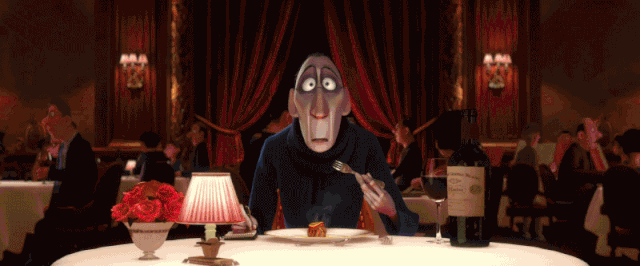I can’t stop thinking about Unreasonable Hospitality.
What communication and hospitality have in common: no one likes to feel stupid.
I just finished Will Guidara’s Unreasonable Hospitality and for weeks now I’ve been telling everyone I know to read it and discussing it with anyone who is willing to nerd out about hospitality with me, but beyond my fascination with the world of Michelin-starred restaurants, I keep coming back to a simple question: What if we started treating communication like hospitality?
Will Guidara is a true game-changer in his industry, holding his own alongside superstar chefs, he is the former co-owner of Eleven Madison Park. In Unreasonable Hospitality (go read it!!!) he writes about the art of making people feel seen. Not just “served” or “accommodated”, i.e. the thing you would expect from dining at a restaurant, but genuinely seen. I’m obsessed with his philosophy which is simple and radical: when you go above and beyond for someone (not because you have to but because you care to) you create real connection.
Feeling stupid can take many shapes. It’s the dinner guest scanning the table, unsure which fork to use, or staring at a menu with words they don’t recognize, pretending to understand. In your daily life, it can sound like hearing a word everyone else understands but you don’t. It can look like being out of the loop, or realizing there’s context you somehow missed. It’s that brief, sinking moment of exposure, or of not knowing something everyone else seems to know. In those moments, feelings of smallness or shame overwhelm the moment, and communication stops being about connection. It becomes fearful and distant.
Anton Ego in Ratatouille by Pixar
This is one of the reasons I have been thinking about how hospitality could be the antidote to that feeling. A great restaurant doesn’t make you feel ignorant for asking; it anticipates your uncertainty and guides you through it. The best servers translate the unfamiliar without making a show of it. They give you permission to learn, to belong, and to feel in the know.
The best communicators do the same. They sense when someone is lost and gently fill in the gaps. They make understanding feel deserving and expected, not because the message is necessarily simple but because it’s approached with empathy.
I say this phrase over and over, and every chance I get:
No one wants to feel stupid.
Everyone wants to feel seen, understood, and included.
If we strip it of all bells and whistles, this is what sits at the core of unreasonable hospitality and great communication: going out of your way to remove every ounce of feeling stupid. For anyone who has worked with me, they will have likely heard me say: “Assume your audience is stupid, but never treat them like they are.”
This might sound cynical and blunt (both words that have been used to describe me at times!) but it’s the opposite. I believe in the philosophy that it is kind to be clear, and to include people, which means never to assume a shared understanding. I would always prefer to be intentional about clarity, rather than performative with expertise.
Because really, clarity is a form of generosity.
When we think about communication through the lens of hospitality, we instinctively stop trying to impress and start trying to include. We stop using language as defensive armor and start using it as an invitation to connect.
In communication, hospitality shows up in small ways: in the metaphors you choose, the transitions you smooth out, the analogies you reach for, the patience you show when someone doesn’t get it the first time. They’re the small things that say, you matter; I see where you are, even if you’re not fully here yet.
In this context, I have also been thinking about Erin Meyer’s The Culture Map (even more so that I usually do, which is often! Read it!), and how it has altered my brain chemistry in the best way possible. Erin’s work is about understanding the invisible codes that shape how people communicate, for example the distance between high-context and low-context cultures, between what’s said and what’s meant. To practice hospitality in communication is, in a way, to understand where on the Culture Map everyone sits, and to bridge the gaps. It’s to notice the subtle cues that say, “I’m lost,” and respond not with authority, but with empathy.
When you strip away the performance, that is the jargon, the assumptions, the obsession with “moving fast and breaking things”, what’s left is the intent to bring someone along, not leave them behind. The intent to make them feel capable, intelligent, and included.
That’s truly where the idea of unreasonable hospitality shines, when you are able to not only see and understand your audience, but make them feel both seen and understood in the most connected way.
And why does any of this matter? Well because when you make someone feel smart, they feel confident and capable. When you make them feel understood, they trust you more. And when you make them feel like they belong, they will go the extra mile for you, because they have seen you do it for them.
Making people feel capable, seen and safe is not a “soft skill”. It’s essential to strong leadership and can be an unstoppable force multiplier. It unlocks trust, accelerates alignment, and builds the kind of loyalty that no title can buy. When people feel seen, they do their best work. And when they don’t, they spend their energy trying not to feel stupid. So maybe that’s the real takeaway from Unreasonable Hospitality: not that we should overdeliver, but that we should over-see. Over-understand. Over-care.
